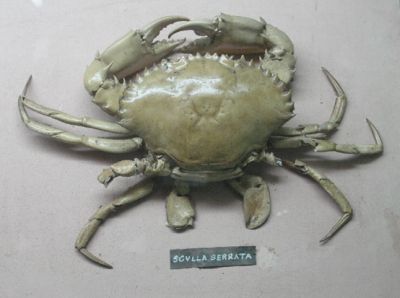|
|
|
|
|
SELANGOR, Malaysia, Aug 27, 2015 - (ACN Newswire) - Scientists in Malaysia have found that crab shells are effective in removing copper and cadmium from contaminated waters.
 | | Purifying contaminated water with crab shells |
Copper and cadmium exist naturally in the environment, but human activities including industrial and agricultural processes can increase their concentrations. At high concentrations, copper can cause unwanted health effects such as nausea, while cadmium can be toxic to the kidneys.
Wastewater treatment helps remove these metals from everyday water sources. Conventional methods include chemical precipitation, coagulation, flocculation, ion exchange, membrane filtration, activated carbon and high-cost technology (such as the use of carbon nanotubes). However, naturally available waste materials, called biosorbents, can clean up contaminated water at the same efficiency, but with little impact to the environment and human health.
In a study published in the Pertanika Journal of Science and Technology, researchers at the Universiti Putra Malaysia tested the effectiveness of crushed shells from the crab Scylla Serrata as biosorbents. These shells are suited to removing copper and cadmium because calcium carbonate present in the shells forms strong bonds when exposed to copper and lead, while chitin absorbs the dissolved cadmium and copper. The shells themselves are a common waste material of the fishing industry, making them an excellent candidate as a cost-effective heavy metal remover.
The research team carried out several tests in water conditions similar to mining or metal refining wastewater, using five different concentrations of copper and cadmium ranging from 1 to 20 per cent. The scientists found that crab shells could remove up to 95 per cent of the copper and 85 per cent of the cadmium after only six hours. Based on these results, the team concludes that "crab shells are undeniably suitable adsorbents for heavy metals from industrial wastewater."
For more information about each research, please contact:
Assoc. Prof. Dr. Ahmad Zaharin Aris
Environmental Forensics Research Centre
Faculty of Environmental Studies
Universiti Putra Malaysia
43400, Serdang, Selangor, Malaysia
Email: zaharin@upm.edu.my
Tel: +603 8946 7455; Mobile: +6012 474 0304
About Pertanika Journal of Science & Technology (JST)
Pertanika Journal of Science & Technology (JST) is published by Universiti Putra Malaysia in English and is open to authors around the world regardless of nationality. Currently, it is published twice a year in January and July. Other Pertanika series include Pertanika Journal of Tropical Agricultural Science (JTAS), and Pertanika Journal of Social Sciences & Humanities (JSSH).
Pertanika Journal of Science & Technology aims to provide a forum for high quality research related to science and engineering research. Areas relevant to the scope of the journal include: bioinformatics, bioscience, biotechnology and bio-molecular sciences, chemistry, computer science, ecology, engineering, engineering design, environmental control and management, mathematics and statistics, medicine and health sciences, nanotechnology, physics, safety and emergency management, and related fields of study.
Website: http://www.pertanika.upm.edu.my/
The paper is available from this link: http://bit.ly/1Ue76dz
For more information about the journal, contact:
The Chief Executive Editor (UPM Journals)
Head, Journal Division, UPM Press
Office of the Deputy Vice Chancellor (R&I)
IDEA Tower 2, UPM-MDTC Technology Centre
Universiti Putra Malaysia
43400 Serdang, Selangor
Malaysia.
Phone: +603 8947 1622 | +6016 217 4050
Email: nayan@upm.my
Press release distributed by ResearchSEA for Pertanika Journal.
Topic: Research and development
Source: Pertanika Journal
Sectors: Water, Science & Research, Environment, ESG
https://www.acnnewswire.com
From the Asia Corporate News Network
Copyright © 2026 ACN Newswire. All rights reserved. A division of Asia Corporate News Network.
|
|
|
|

|
|
|
|